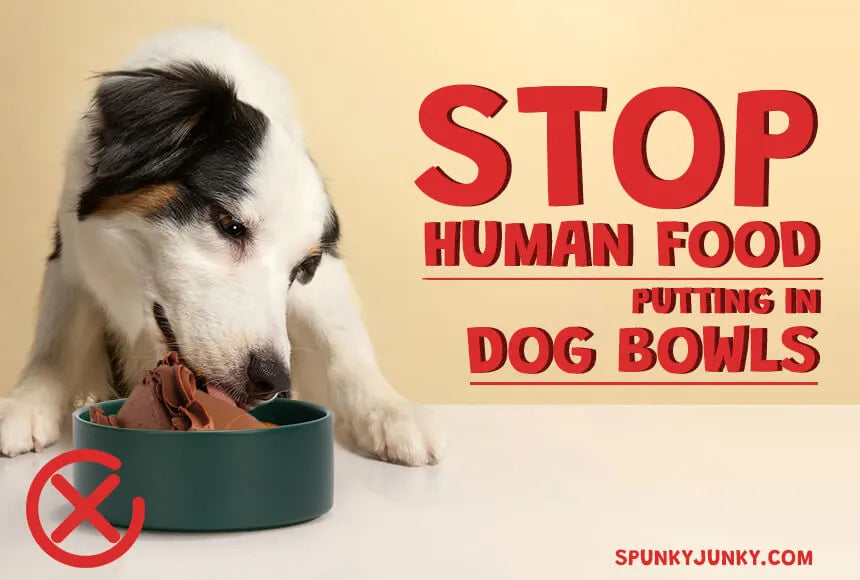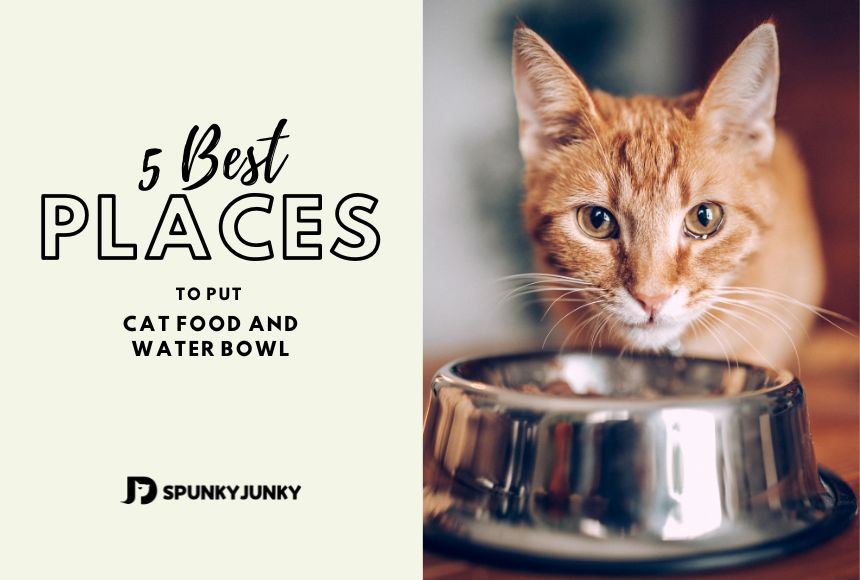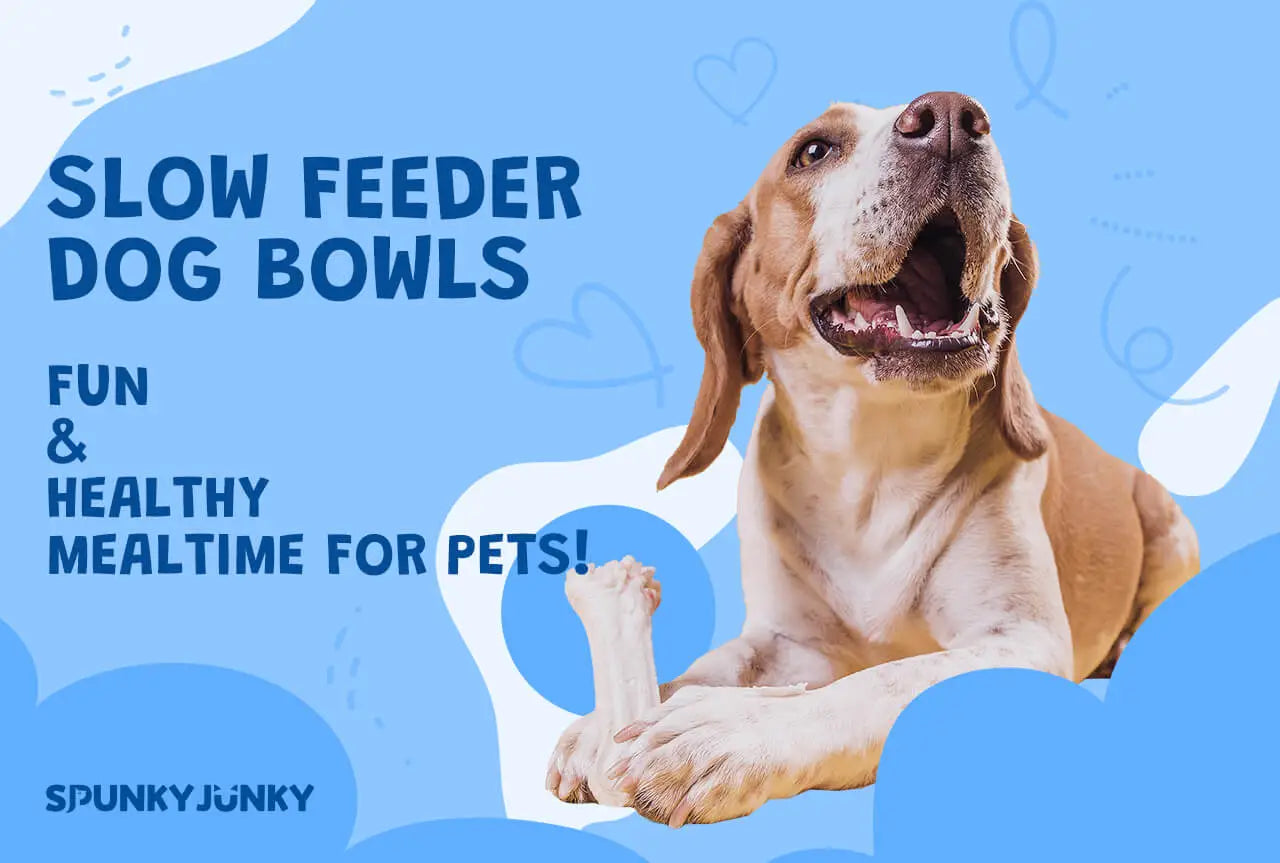Are you someone who loves giving dogs a taste of human food? It's time to learn why that might not be a good idea. A recent study found that many dog owners feed their pets human food regularly, and some even let their dogs join them at the dinner table! But did you know that certain human foods can be harmful to dogs?
One of the biggest concerns is obesity. Like humans, obesity is a growing problem among dogs and cats. Surprisingly, our four-legged companions often share popular dishes like sausage and mash, steak pie, and spaghetti bolognese. However, these foods can lead to serious health issues and should be avoided.
So, let's take a closer look at the issue and learn why keeping human food out of dog bowls is important. Read on to learn more!
Pros and Cons of Feeding Dogs Human Food
Feeding dogs human food is something that many dog owners do. This seemingly safe thing has many hidden risks. Let's explore the pros and cons of feeding dogs human food to raise our dogs better.
On the one hand, there are some positive aspects to feeding dogs human food.
For example...
● Different Tastes: Sharing safe and healthy human food with your dog allows them to taste a variety of flavors. Some fruits, vegetables, and lean meats are both tasty and healthy.
● Fun and variety: Dogs sometimes get bored of the same food daily. Offering them some human food can add fun and variety to their meals. They may enjoy experiencing new textures and smells.
However, there are greater risks in feeding dogs human food.
For example...
● Cause Digestive Problems: Dogs have sensitive stomachs, and some human foods can cause digestive issues like vomiting and diarrhea. This is because their bodies are not used to processing rich and fatty foods like humans do.
● Some Human Foods Are Toxic to Dogs: Certain foods safe for humans can be toxic to dogs. Chocolate, raisins, grapes, onions, garlic, and some nuts are examples of foods that can make dogs very sick. They can cause problems with their kidneys, muscles, and blood cells and even lead to seizures or death.
● Lead to Weight Gain: Feeding your dog too much human food can lead to weight gain, just like how eating too many snacks can make us gain weight. Extra calories from human food can add up quickly and cause health problems for your furry friends, like arthritis, diabetes, and heart disease.
● Make Your Dog a Picky Eater: If you constantly give your dog human food, they may start begging for it all the time. This can make them picky eaters and refuse to eat their own dog food specially made for their nutritional needs. It's important to stick to their food to ensure they're getting the right nutrients.
Remember, it's always best to consult with a grown-up or a veterinarian before giving your dog any human food. They can help you understand what foods are safe for dogs and how much is okay to share. Your dog's health and happiness are important, so it's essential to make responsible choices regarding their diet.
3 Tips on How to Feed Your Dog
Who doesn't love pampering their dog with an extra treat at the dinner table? While it's important to prioritize regular dog food for puppies, there are also human foods that can be shared with them in small amounts. It is important to remember the following 3 tips:
1. Avoid giving your dog any processed or prepared food. Instead, stick to single-ingredient foods like unsalted eggs, natural unsalted peanut butter, or some fruits and vegetables.
2. Be aware of the calorie content of any human food you feed your dog. Even a small snack bite can add up and lead to weight gain if you're not careful. It's best to consult your veterinarian to determine your dog's daily calorie needs and factor them into your decision.
3. Learn about foods that are toxic to dogs. Keep these items out of reach and avoid sharing them with your dog, even if they get innocent looks at you.
Stop These Human Foods Ending Up in Dog Bowls
After knowing the 3 tips on how to feed your dog, let's see what dogs should not eat human food.
1. Almonds: Almonds can be dangerous to dogs if chewed incorrectly. They can cause blockage or tearing of the throat or windpipe. Salted almonds, in particular, may harm dogs with heart disease.
2. Chocolate: Chocolate contains substances that are toxic to dogs. Even small amounts can cause digestive problems such as vomiting and diarrhea. Larger amounts can cause more serious problems, such as seizures and abnormal heart function.
3. Cinnamon: While cinnamon is not toxic to dogs, it can irritate their mouths and lower their blood sugar levels excessively. This can lead to symptoms such as diarrhea, vomiting, and even liver disease. Inhaling cinnamon powder can also cause difficulty breathing.
4. Garlic: Garlic, which belongs to the Allium family of plants, along with onions, leeks, and chives, is highly toxic to dogs. It can cause anemia, leading to pale gums, a rapid heart rate, weakness, and even collapse. If you suspect your dog has eaten garlic or onions, monitoring them closely for any symptoms is important.
Conclusion
Although it may be tempting to share our food with our dogs, it's best to stick to their own special dog food. Feeding them human food can cause stomach upsets, contain harmful ingredients, make them gain excess weight, and even cause them to be picky eaters. If you want to increase the interaction between you and your dog by feeding them human food, keep these 3 principles in mind. To be a good pet owner means to know everything about dogs. When you learn more knowledge, it means that dogs grow healthier.






